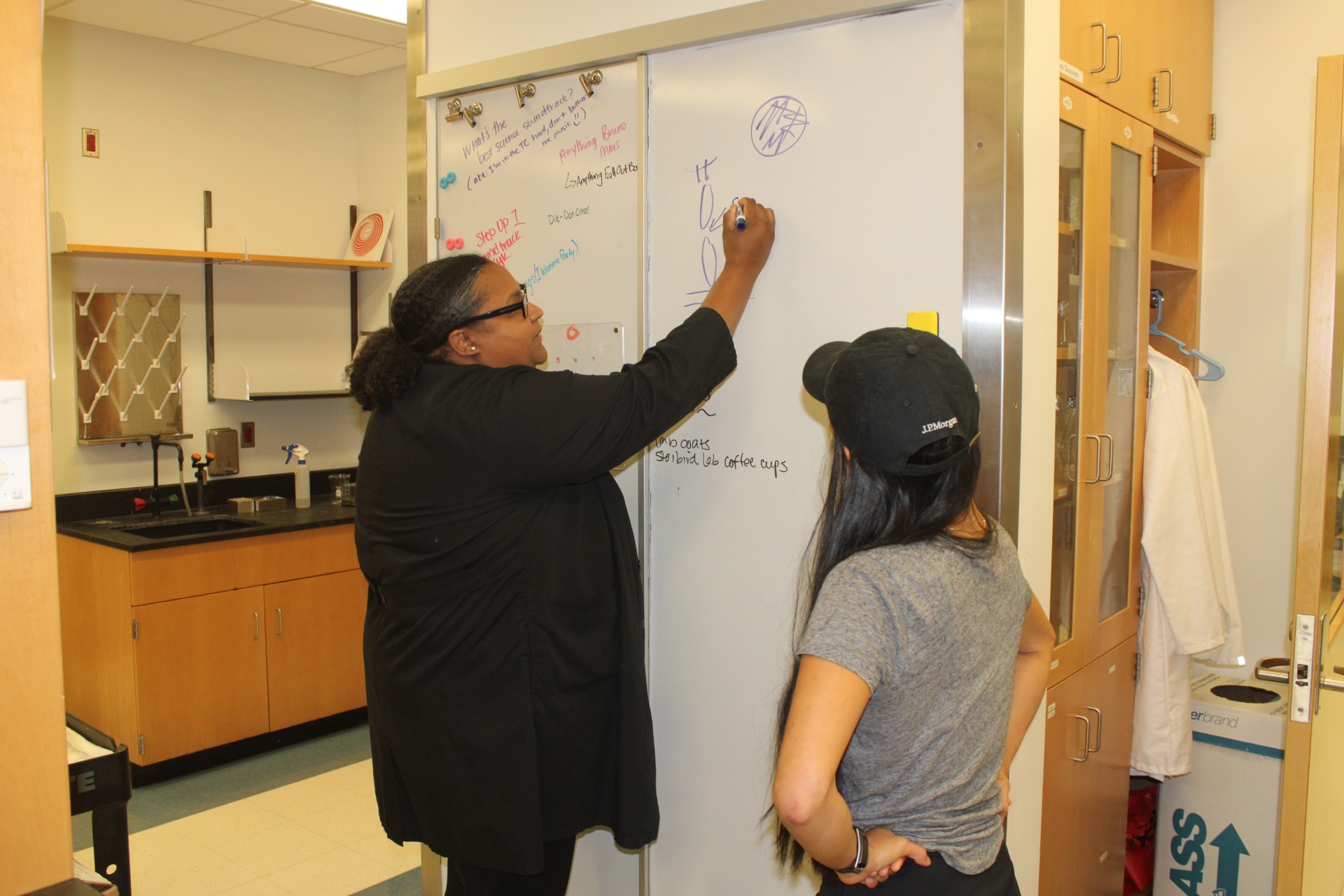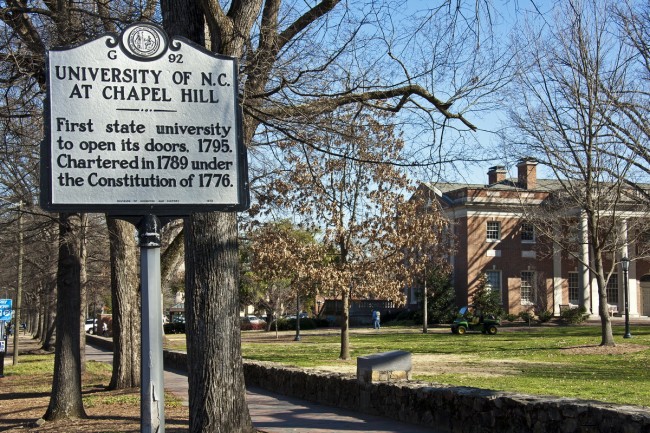The North Carolina Policy Collaboratory at UNC recently announced $430,000 in grants for three research projects regarding contaminants in water supplies in North Carolina, including GenX – a potentially toxic industrial compound that has been detected in the Cape Fear River.
The collaboratory, which has been funded by the state legislature for two years, exclusively sponsors projects that focus on environmental issues and natural resources.
The bulk of the nearly half-million dollars in grants will go toward evaluating emerging contaminants, such as GenX, in private wells.
Collaboratory executive director Brad Ives says the danger of these contaminants remains unknown.
“This is a chemical compound which wasn’t on a list of things to watch out for,” said Ives. “It’s in a category called ‘emerging contaminants,’ so that’s when the scientific community can recognize that there is a compound that’s being released through some kind of manufacturing process or perhaps even occurs naturally in nature that now could cause problems in humans.”
$50,000 in grants will also go toward developing an easy-to-read paper test to detect the presence of GenX in water and determine if additional analysis is necessary.
Ives says these tests could eventually cost only 50 cents.
“This is something that we could mail out to people in an affected area so they can periodically test their water and see if the specific GenX compound is in that water,” said Ives.
Ives believes that this is an excellent example of how UNC – Chapel Hill and the UNC System should handle public health issues.
“We’re moving ahead to figure out how to give people some quick comfort at home,” said Ives. “Do they have a problem? If they do, will a filter address that problem? That’s where we can take a lot of scientific expertise in public health and chemistry that UNC has and apply that to making life better for everybody.”
Related Stories
‹

UNC Cancer Hospital Renamed to Honor State LeaderMarc Basnight was North Carolina’s longest-serving legislative leader. After his death, state legislatures wanted to find a way to honor him.

UNC Researchers Warn About Effects of Federal Funding Cuts on Cancer Discoveries, TreatmentsThreats of federal funding cuts are already felt within research circles at UNC, including the labs of some leading cancer research.

Art’s Angle: PerspectiveMack Brown was crying after the 41-34 shocker to Georgia Tech — but he was weeping about losing one of his former players and team leaders.

UNC Study: 'Habitual' Social Media Use Changes Kids' Brain DevelopmentDo you remember the time before social media? For children and young adults, social media is a significant part of their lives — and we’re still learning how it’s affecting them.
A study conducted by UNC researchers found a habitual checking of social media can impact brain development in adolescents.

UNC Researcher on COVID, At-Risk Populations: 'We Are Not Out of the Woods'As coronavirus cases in North Carolina continue to rise, researchers and health officials are expressing concerns for at-risk groups – and that means more than just the elderly population. Dr. Giselle Corbie-Smith is a UNC Professor of Social Medicine, the Director of the Center of Health Equity Research and a Professor of Internal Medicine. She […]

UNC Pushes Back Against Research Allegations in The AthleticUNC interim chancellor Kevin Guskiewicz has long been viewed as one of the leading concussion researchers in the world in recent years. But a report published in The Athletic this week claimed that for years UNC student-athletes, particularly football players, were testing positive for ADHD at abnormally high rates – which the report claims could […]
![]()
'Jeopardy!' Host Trebek says he's Resumed ChemotherapyAlex Trebek says he’s had a setback in his battle with pancreatic cancer and is undergoing chemotherapy again. Trebek told ABC’s “Good Morning America” on Tuesday that after a short period of optimism when he stopped chemotherapy, his “numbers shot up” and doctors ordered him back on the treatment. The 79-year-old game show […]

New UNC Center to Research Technology's Impact on DemocracyUNC announced its plans for a new research center on Monday that will study the ways technology is changing democracy in the digital age. The Center for Information, Technology and Public Life will look to discover empirical numbers on ways technologies impact and interact with society. Topics like fake news, the sales of data to […]

UNC Studying Link Between Obesity and CancerResearchers at the UNC Lineberger Comprehensive Cancer Center are looking into the links between obesity and cancer. While it is common knowledge that things like smoking and exposure to sun can put you at risk for cancer, Professor in the Department of Nutrition at UNC Dr. Stephen Hursting says obesity is a lesser known risk […]

NC Policy Collaboratory to Fund GenX ResearchThe North Carolina Policy Collaboratory at UNC recently announced $430,000 in grants for three research projects regarding contaminants in water supplies in North Carolina, including GenX – a potentially toxic industrial compound that has been detected in the Cape Fear River. The collaboratory, which has been funded by the state legislature for two years, exclusively […]
›










